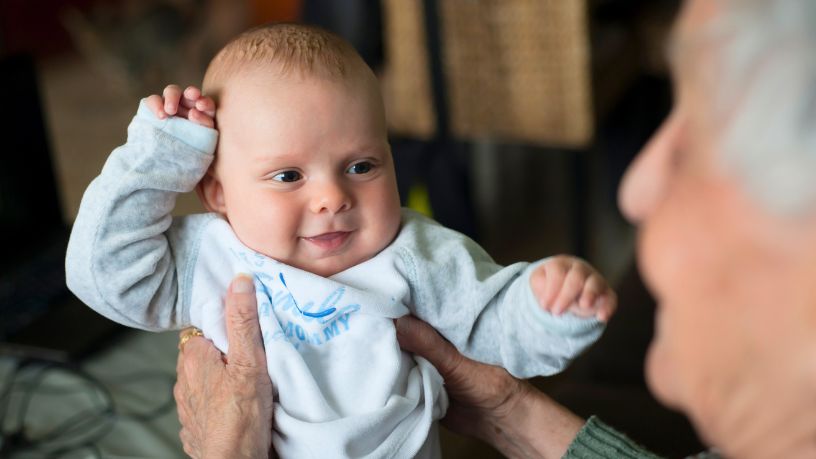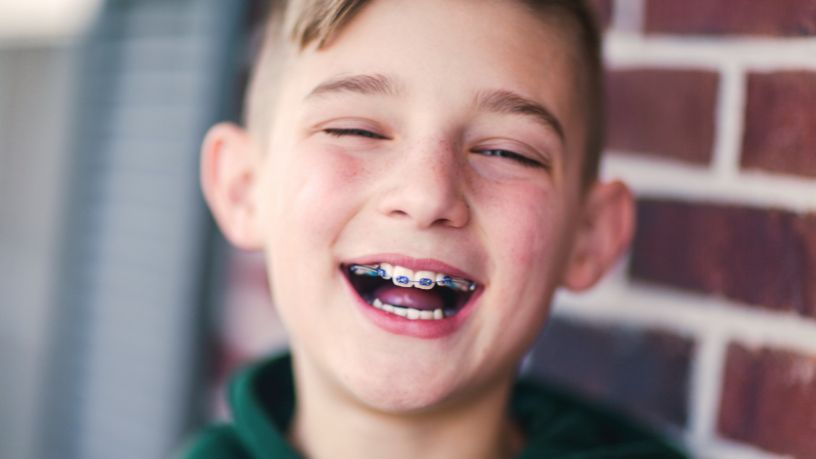Dental anxiety affects around 10% of children in Australia.
Key takeaways
Dental fears can begin in childhood, so starting your kid off on the right foot can help prevent it.
These 7 expert tips can help prepare you and your child for their first visit to the dentist.
Dental anxiety is a common problem amongst children, particularly when it comes to their first visit.
But the good news is that there are ways to prepare your child ahead of their first visit to the dentist (and as they grow up) in order to reduce their likelihood of developing this fear.
What is dental anxiety?
In a nutshell, dental anxiety is fear, worry and stress associated with visiting the dentist. This may be due to a painful past experience, a fear of the unknown or a general dislike of medical settings.
Research indicates that around 10% of children and 16% of adults in Australia experience dental anxiety.1
While it might conjure images of prodding, buzzing dental instruments and bright lights, a first visit to a paediatric dentist can be an enjoyable experience.
The first dental appointment
A child's first appointment with a dentist is usually designed to familiarise them with who a dentist is, what they do, the dental chair and how to keep teeth and gums healthy.
More often than not, a child's willingness to have their teeth checked will come down to how well prepared they are for the visit. Of course, dental practitioners do their best to make the experience fun and enjoyable, but ultimately, preparing a child for their first visit to the dentist will come down to their parents or guardians.
These 7 tips may help to stop them from forming any negative associations with visiting the dentist.
1. Show them you’re relaxed
Children often pick up on their parents' energy. So, if you're happy and relaxed before their first dental appointment, there's a good chance they will be too.
Try to bear in mind that many Australian adults have a fear of the dentist, too, which could include you. Kids can adopt their parents' anxieties, so try not to expose them to your own fears if you're nervous about visiting the dentist.2
2. Lead by example
As well as showing your child that you're calm and positive about visiting the dentist, it can help to get other members of your family to lead by example.
Older siblings are great for this. They can confirm that a visit to the dentist is fun and easy, and that there might even be a prize at the end!
Attending the appointment as a family can also be a great way to show your child that there is nothing to worry about, especially if their sibling goes first to show them how it's done!
3. Help to distract them
If your child is anxious about visiting the dentist, and talking about it only adds to that fear, it may help to distract them with something like a toy or a book in the waiting room, before their appointment.
4. Offer a reward
While many dental practitioners will provide some kind of gift for your child at the end of the appointment (like a sticker or a new toothbrush), it may also be helpful to schedule something fun after the dentist visit so that the appointment is not the main event of the day.
5. Prepare them
It can help to talk with your child about the appointment before it happens. Let them know that there will be a person looking inside their mouth to make sure it's healthy and that they will get to sit in a fun chair! Watching TV shows or reading books which involve a positive dentist visit can be helpful.
6. Pick the right time
Make sure you book in a time when your child is typically relaxed and happy. As any parent knows, a relaxed and rested child is usually a more cooperative one!
It may also help reduce your child's risk of developing dental anxiety if their visits start early in life. Going to the dentist before the age of 2 and maintaining regular check-ups every 6 to 12 months can significantly reduce a child's dental fear.3
7. Find a dental practitioner your child is comfortable with
Whether you choose to see a general dentist, hygienist, oral health therapist or a specialist paediatric dentist, it always pays to do a little research ahead of time. Search online or get recommendations from your friends and family, and look for a professional that seems like a good fit.
Once you've found a dental practitioner who's a good fit for your child, sticking with them can help your child feel comfortable and minimise their fear as they get older. So, finding the right one early on is ideal.

At Bupa, trust is everything
Our health and wellbeing information is regularly reviewed and maintained by a team of healthcare experts, to ensure its relevancy and accuracy. Everyone's health journey is unique and health outcomes vary from person to person.
This content is not a replacement for personalised and specific medical, healthcare, or other professional advice. If you have concerns about your health, see your doctor or other health professional.
1Dental Practice Education Research Unit, Adelaide Dental School. (2022). Dental Fear and Anxiety. The University of Adelaide.
2Šimunović, L., Špiljak, B., Radulović, M., et al. (2022). Relationship between Children's and Parents' Dental Anxiety: A Cross-Sectional Study on the Six European Countries. Dentistry Journal, 10(11), 209.
3Carrillo-Díaz, M., Migueláñez-Medrán, B. C., Nieto-Moraleda, C., et al. (2021). How Can We Reduce Dental Fear in Children? The Importance of the First Dental Visit. Children (Basel, Switzerland), 8(12), 1,167.
You might also like...
How to look after your baby's teeth
A baby’s first tooth is a milestone. Here’s how to look after your baby’s teeth during their early years.
Wearing braces: How to take care of your teeth
When you get braces, you don’t just have to get used to how they feel. You’ll also have to learn how to clean your teeth and gums properly.
How to have conversations with kids
It’s like the flick of a switch. Suddenly, your little chatterbox doesn’t want to talk to you anymore. So, what can you do to help your child open up again?
How to create healthy lunchboxes that kids will love
Looking for some healthy lunchbox inspiration for your child? Make every bite count with these tasty tips.





